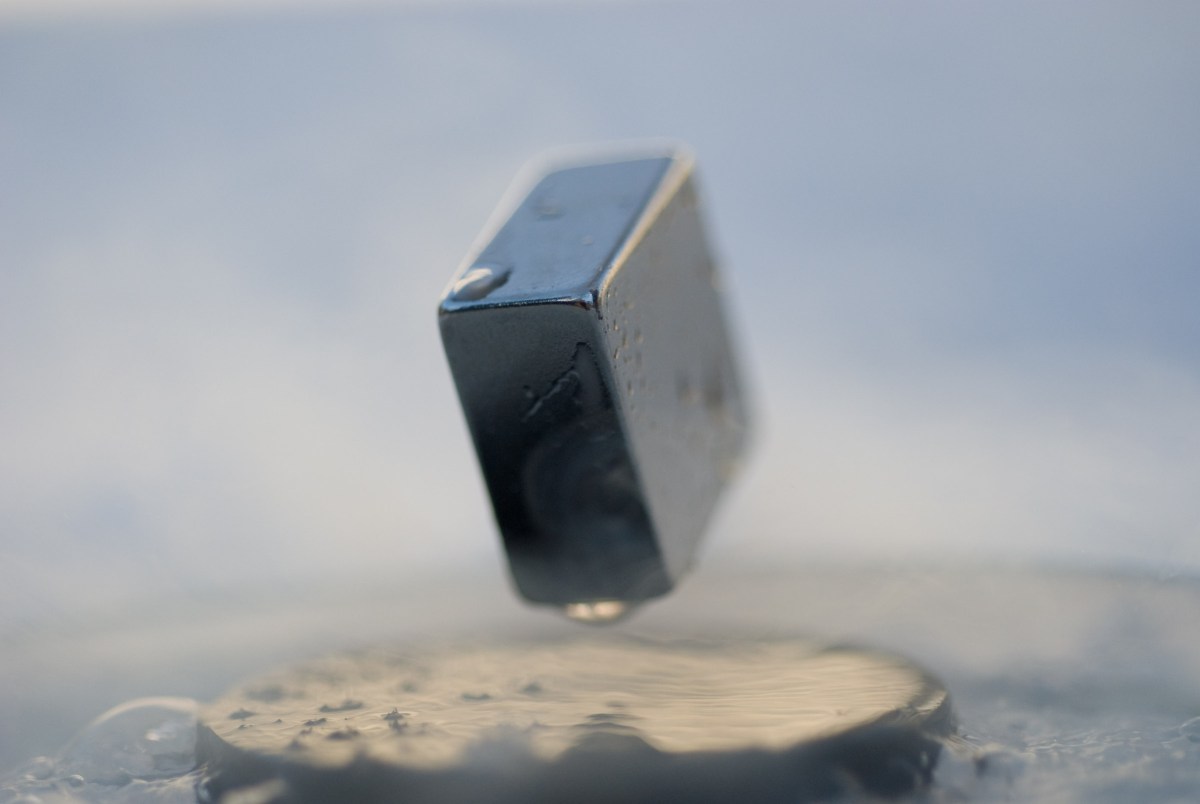Completely agree. All I said though is that I was "wow!" when I saw that article about 2 tests validating superconductivity behavior... but I myself remain skeptical. And again, no matter what it is unlikely to make a change anytime soon. The article I posted mentions they can't even produce it to behave like that other than in very limited areas of the finished product, which for one renders it unsuitable for any thoughts of mass production anytime soon.Again, understood and all reasonable. But I feel like this comment and your previous comment are both sort of leaping over the most important step/question: is LK99 a superconductor or not? We don't know yet, and until we do, I doubt I am alone in not wanting to get excited yet, given the history of previously claimed room-temperature superconductor discoveries (not to mention the somewhat bizarre circumstances of the publication/withdrawal/republication of the preprint that's at the center of all this).
-
WANTED: Happy members who like to discuss audio and other topics related to our interest. Desire to learn and share knowledge of science required. There are many reviews of audio hardware and expert members to help answer your questions. Click here to have your audio equipment measured for free!
You are using an out of date browser. It may not display this or other websites correctly.
You should upgrade or use an alternative browser.
You should upgrade or use an alternative browser.
What would room temperature superconductivity do for audio?
- Thread starter kemmler3D
- Start date
JSmith
Master Contributor
5:30 AM GMT+10•August 3, 2023

 techcrunch.com
I can't get past that sites paywall... even though I have extensions, tried other methods etc.
techcrunch.com
I can't get past that sites paywall... even though I have extensions, tried other methods etc.
JSmith

What if room temperature superconductors were real? | TechCrunch
Myriad industries would be ripe for upheaval. Here are a few that would stand the most to gain.
What are the reasons for skepticism?
There are several, Norman says. First, the undoped material, lead apatite, isn’t a metal but rather a nonconducting mineral. And that’s an unpromising starting point for making a superconductor. What’s more, lead and copper atoms have similar electronic structures, so substituting copper atoms for some of the lead atoms shouldn’t greatly affect the electrical properties of the material, Norman says. “You have a rock, and you should still end up with a rock.” On top of that, lead atoms are very heavy, which should suppress the vibrations and make it harder for electrons to pair, Norman explains.
JSmith
Incredibly unlikely. To get the superconductivity, the materials will be super exotic. The chances that such materials will *also* be able to exhibit semiconductor properties are (Sorry, opinion being expressed) zero.I doubt anyone can do that conclusively yet. But, as I mentioned previosuly (and -caveat- this may obsolete my -and many others- assumptions) magnetism and superconductivity in some ways are at odds -they repel each other-, check the Meissner Effect. Which makes superconductors diamagnetic, so it is not a contradiction, from my retired skills in Physics. But you can compartmentalize in designs, as shown in current use cases of superconductors (which someone else pointed out -kudos and sorry I can't check the id and credit as I type this- and separate stuff for results... which conceivably, if this works out, is HUGE and makes it much easier. Current superconductivity stuff requires liquid helium stuff and what not, which is incredibly energy hungry and comes with may limitations for practical use in consumer stuff.
But imagine if this LK99 stuff could be integrated into 3nm semiconductors... imagine a CPU or DSP or Class D that does not even need a cooler. That in itself would be mind-bogglingly disruptive.
And even if you could, then it wouldn't help with (eg) CPU losses. A CPU mostly doesn't get hot because of resistance, but because of switching losses. While a transistor switches it must do so through the linear region - simultaneously having voltage across it and current through it. IE Power. This is why power goes up as clock frequencies go up.
This would not change even if you could make superconducting switches. You'd only be able to get rid of on state losses.
A quick update:
TL;DR: inconclusive to negative reproductions
TL;DR: inconclusive to negative reproductions
A Room-Temperature Superconductor? New Developments
1 August 2023Another update.
I think it will be even bigger than the Bybee Quantum Purifier.
Seems the consensus is now that it is not a superconductor, but rather a diamagnetic material (which basically all semiconductors are)? That's the last I read on the topic.
Wut dey put in dem tings?I think it will be even bigger than the Bybee Quantum Purifier.
HoweSound
Active Member
I'm concerned that somebody will drop a piece of room temperature superconductor material into a body of water, thereby creating ice-nine and bringing an end to life on this planet...

Hopes Dashed As LK-99 Confirmed Not To Be A Room-Temperature Superconductor
There is no point in resisting the data.
mhardy6647
Grand Contributor
- Joined
- Dec 12, 2019
- Messages
- 11,414
- Likes
- 24,776
Kind of a low bar.I think it will be even bigger than the Bybee Quantum Purifier.
Which it still didn't exceed. I'll note.Kind of a low bar.
Another one exposed, this time it went from stupid to malicious:
Even if that worked (high pressure induced super-c), It would still be impractical to use since getting that kind of pressure is probably as hard to do as getting temperatures close to absolute zero. I think super-c will remain a laboratory curiosity for the foreseeable future. I'd like to see it becoming practically useful happen, though.
Similar threads
- Replies
- 16
- Views
- 926
- Replies
- 7
- Views
- 583
